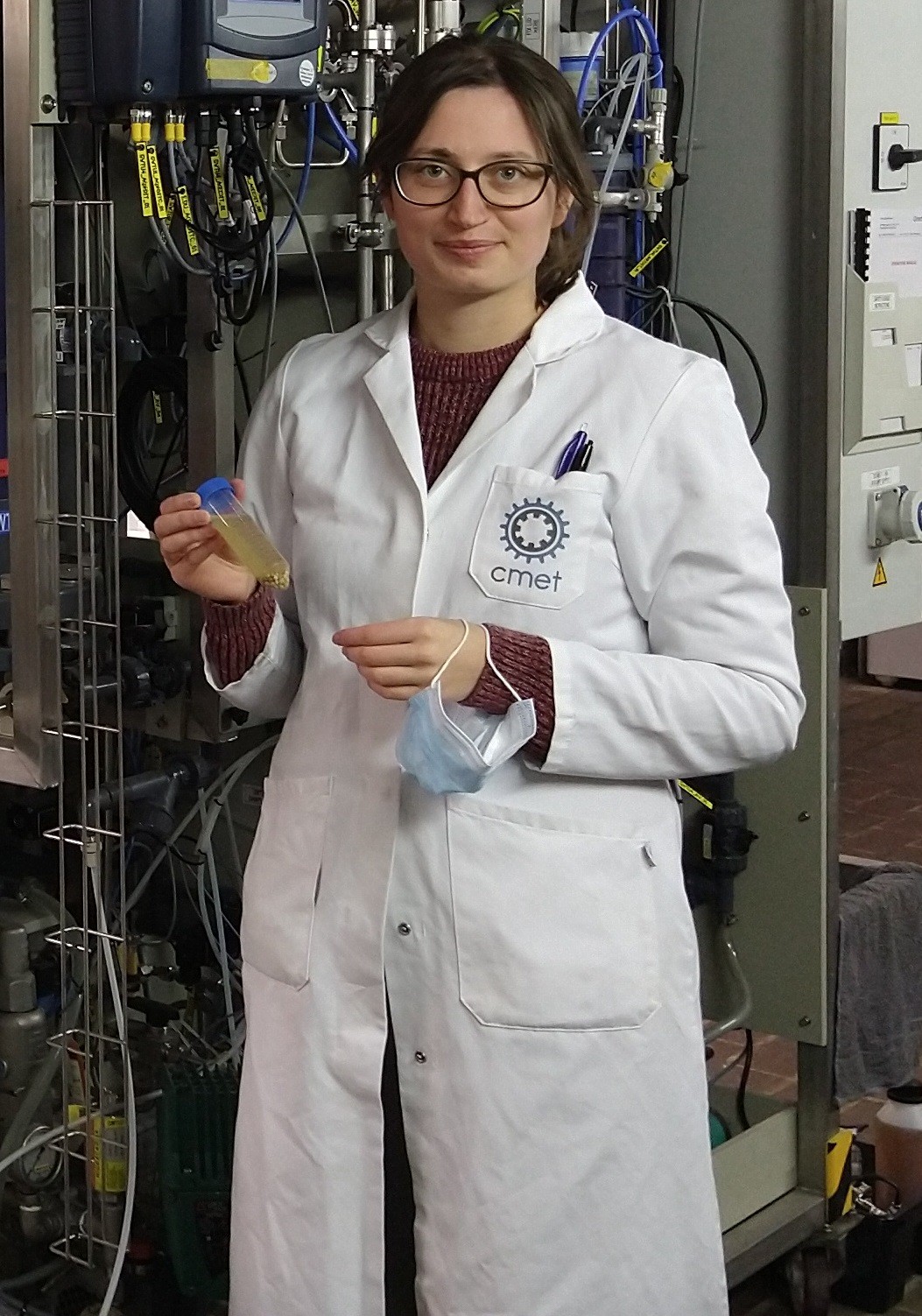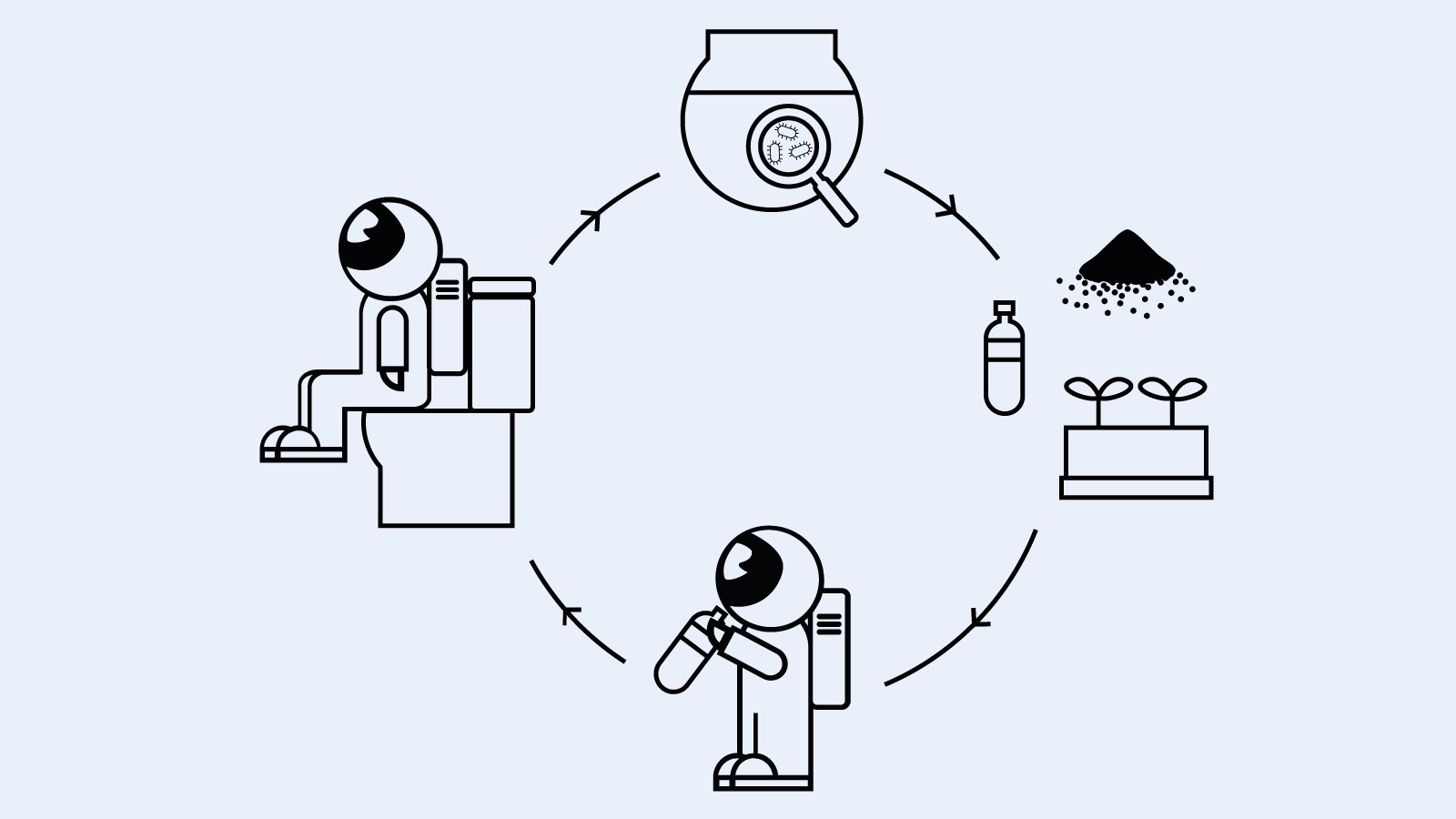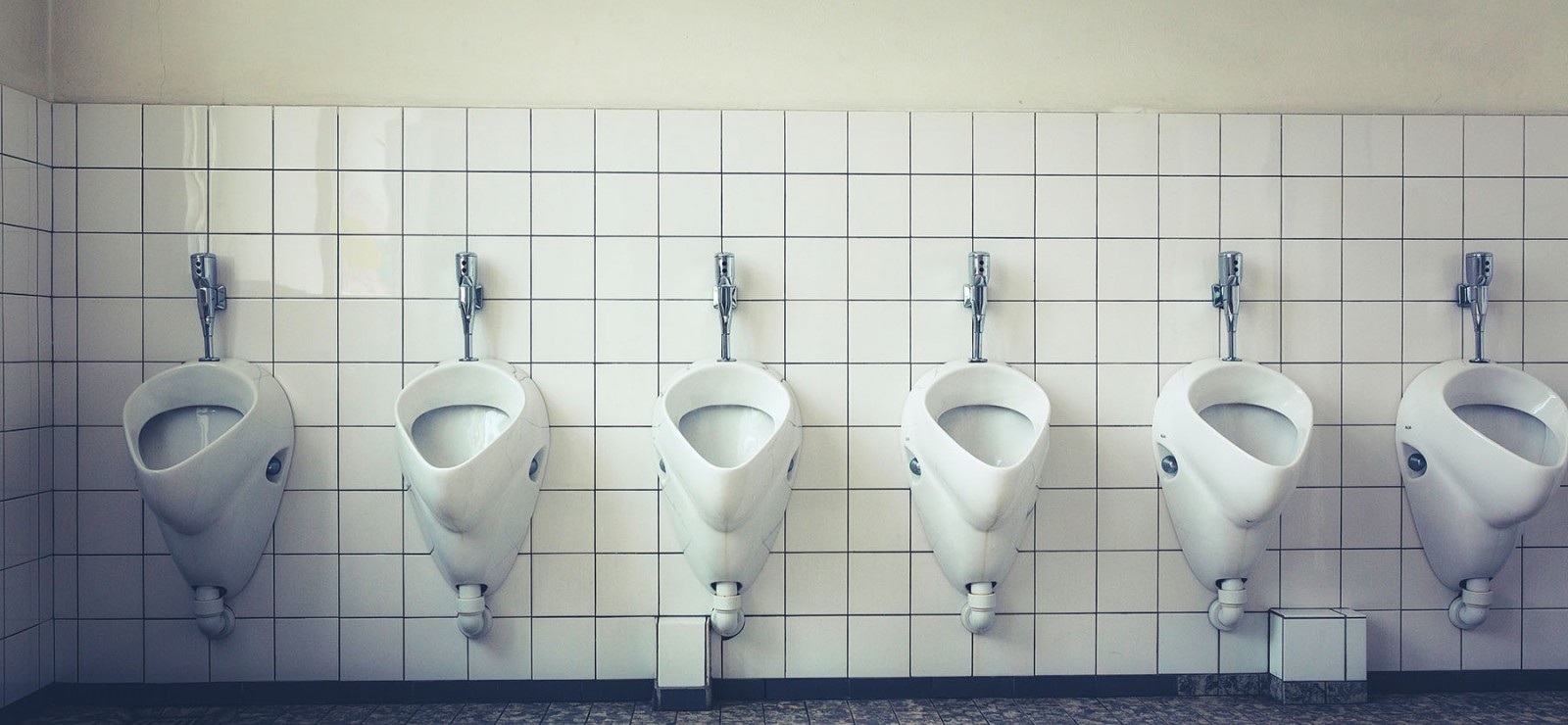The organization and transportation of water and food is one of the biggest obstacles to a manned trip to Mars or any other distant destination in space. It is impossible to send all the necessary food and drink into space. Bio-engineer Jolien De Paepe is therefore developing a recycling system that converts astronauts’ urine into clean drinking water and valuable nutrients. The system also has potential sustainable applications on Earth.
Every day we all flush a liter of urine down the toilet. Here on Earth, we consider that waste, but for space travelers, urine is a source of valuable raw materials. For example, visitors to the International Space Station (ISS) drink water that has been recycled from their urine. “Rather you than me,” Donald Trump said during a conversation with astronaut Peggy Whitson, who spent 665 days aboard the ISS, an American record. What Trump finds strange is as normal as it is necessary for astronauts. After all, it is impossible (and prohibitively expensive) to lug an endless supply of water into space. A device on board the ISS therefore processes the urine back into drinking water. Yesterday’s coffee therefore becomes today's coffee!
Self-sufficiency on space travel
But urine contains much more than just water. According to bio-engineer Jolien De Paepe, we can safely call it liquid gold. In her PhD at Ghent University, funded by the European space agency ESA, she sought and found ways to maximize the value of urine. “Urine contains phosphorus, nitrogen and potassium. These are fertilizers that make food crops grow. Processed urine can also serve as food for microorganisms, which in turn can be food for space travelers. Spirulina is one such promising space food. It is a micro-algae that can process urine, but at the same time is itself a valuable source of proteins, vitamins and minerals. Spirulina is also resistant to harmful space radiation and also produces a lot of oxygen.”

Jolien De Paepe’s doctorate is part of an ESA project to produce and recycle oxygen, water and food in space, called MELiSSA (Micro-ecological Life Support System Alternative). “MELiSSA is a system of reactors in which bacteria, micro-algae and plants convert astronauts’ waste products, such as urine, but also exhaled air and feces, back into oxygen, food and drinking water. The aim is to ultimately create a fully circular system, so that spaceships no longer need to be supplied from Earth. Such a system is essential to enable distant space travel.”

To make long-distant space travel possible, a spaceship must be self-sufficient and circular. Waste from astronauts, such as urine, is then converted back into food and drinking water by micro-organisms.
Applications on Earth
De Paepe’s research is primarily intended for space travel, but it also has promising applications on Earth. “Spirulina, for example, can also enrich our diets here on earth. Spirulina may sound familiar to anyone who has ever visited an eco-store or is a fan of super foods. The micro-algae are sold there in dried form as a valuable dietary supplement. I’ve already baked a cake with it myself, with success. The big advantage of micro-algae such as Spirulina is that they convert nitrogen into nutrients much more efficiently than “traditional” food crops. They need much less water and land area, and can grow on waste streams.”
De Paepe also has good (sustainable) news for those who don’t like the algae on their plate. “The micro-algae can also serve as food for livestock, making your steak is more sustainable. And fertilizers recovered from urine can yield more sustainable tomatoes and potatoes. After all, processed urine can be an alternative to the current fertilizer, which is not really clean. Nitrogen, for example, is produced industrially, which requires a lot of energy, and potassium and phosphorus come from pollution-creating mines. If we could get those substances out of urine, it would be much better for our planet.”
And sustainability gains can also be made in the field of water purification. “Urine is now very demanding on our water treatment plants. Urine makes up just one percent of all wastewater that flows to those water treatment plants, and yet it is responsible for about 80 per cent of all nitrogen and half of all phosphorus. Removing those substances from wastewater requires a lot of energy, and ironically it is also the reverse reaction that fertilizer producers use to make fertilizer. So not very efficient.”

What are we waiting for?
Processing urine into fertilizers is not so easy however. “Urine is very unstable. After just a few hours, urine breaks down into various substances, releasing volatile ammonia and, in confined spaces (such as in a spaceship), toxic ammonia. The urine also rapidly generates a smell and the useful elements quickly disappear.” De Paepe has developed a method that stabilizes urine and therefore makes it “usable” for longer. She then removes the fertilizing elements with the help of micro-organisms.
But overcoming that hurdle is not the end of it. “Urine now arrives highly diluted in water treatment plants. To be able to process it into fertilizers, we have to separate urine from solid feces and other wastewater. This requires a separate toilet. Such a separate toilet also uses much less water than a traditional toilet. The introduction of separate toilets is already possible, but not economically viable. An installation in your basement to process urine cannot is not yet an economic possibility for an individual household. That is why in the short term I am thinking more about applications in locations where a lot of urine is collected, such as at airports or other busy places.”
Jolien De Paepe is currently developing a concrete application at Hydrohm, a spin-off of Ghent University. “We are developing a system for public toilets that not only recovers nitrogen and phosphorus from urine, but also filters out the salt to make clean rinsing water.”
Don't try this at home, kids
To those who, after reading this article, feel the urge to water the (vegetable) garden, Jolien would like to say this: “Don't! Yes, everything plants need is present in urine, but urine is also high in salt, which can kill your plants. Moreover, it is also not hygienic, it can contain micro-pollutants, and you can suffer from odor problems.”
Space toilet
Curious about how astronauts respond to a call of nature in the International Space Station? ESA astronaut Samantha Cristoforetti shows you around in a space toilet!
Read also
Purifying water helps both companies and the planet move forward
Companies, farmers, nature and consumers alike depend on water. Yet despite the fact that 70% of the Earth’s surface is covered with water, only 1% of it is drinkable. And as climate change progresses, ensuring sufficient water for everyone is becoming increasingly challenging. Advancing water purification technologies is therefore more essential than ever.
Elisa demonstrates how fish waste can become a resource (and wins an award in the process)
In her master’s dissertation, bioengineer Elisa Kooy demonstrated how fish waste could find alternative uses, among others in future generations of rechargeable batteries. Her dissertation landed her the NBN Sustainability Award, which is part of the Flemish Dissertation Award. “The prize is wonderful but the process was even more valuable.”
'Belgian Nobel Prize' for pioneering work by Professor Veronique Van Speybroeck
Professor Veronique Van Speybroeck is one of the world's leading researchers concerning sustainable technologies. For making groundbreaking contributions to the computer modelling of catalysis, she wins the prestigious Francqui Prize for Exact Sciences.
Important step towards sustainable shipping thanks to Ghent University research
At last, a feasible solution for sustainable shipping is on its way. The very first tug running on green methanol, developed by researchers at Ghent University in collaboration with the Anglo Belgian Corporation, is ready to conquer and inspire the maritime world.




